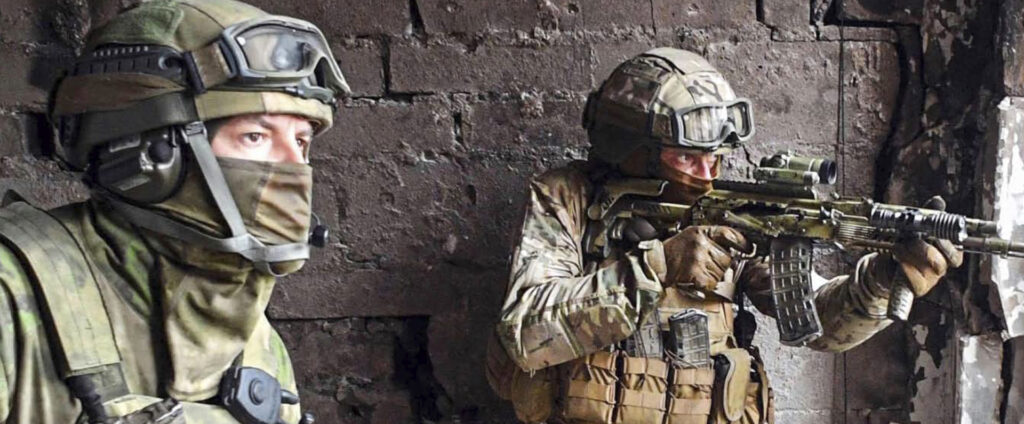
Published in The Mail on Sunday on 28 April 2024.
Women who lure Putin’s soldiers to their deaths with promises of sex. Locals handing out poison cakes… There’s nothing Ukrainians behind enemy lines won’t do to defeat their Russian occupiers.
At first glance, Andrii is a typical university student. Aged 21, he has a mop of fair hair, blue eyes and a gentle smile. Unlike most students, however, he has been risking torture and death behind enemy lines, smuggling out secret intelligence to the Ukrainian resistance.
Andrii was born and brought up in Mariupol, the port city that was besieged and then invaded by Russia in the first two months of the war in early 2022.
The brave Ukrainian soldiers who remained in the city’s steelworks for weeks under terrifying bombardment came to embody the nation’s defiance against overwhelming firepower.
A true patriot, Andrii couldn’t sit by while his country collapsed. So, unarmed and with just a smartphone, he began photographing documents, buildings and locations that he felt would be useful for the Ukrainian armed forces.
From August 2022 he became aware of a secure social media channel on which he could send his information to the Ukrainian army, barely 100 miles away with rocket launchers trained on his home city.
He then began locating and photographing enemy barracks and troop movements, along with weapon and ammunition stores.
This vital information was used to kill Russian troops and wipe out enemy equipment using missiles, drones and artillery shells.
Andrii is just one of tens of thousands of brave men and women who have risked their lives in what many abroad call the ‘Occupied Territories’ – but which Ukrainians prefer to call the ‘Temporary Occupied Territories’.
About 20 per cent of Ukraine’s land, mostly in the far east of the country, is under Russian control.
Millions of people are forced to live under the iron rule of their occupiers, who keep order through the threat of imprisonment, torture and even execution.
Aged 19 at the time of the invasion and living with his family, Andrii says: ‘I wanted to do something, however small, to help the country I love. I did not consider my life was important compared to the bigger picture – I was prepared to die.’
Eventually, however, Russian police and security agencies cottoned on to his spying. Andrii knew he had to flee his home city when he heard Russian security officers were interrogating shoppers over his whereabouts, armed with a picture of him.
Andrii’s escape from Mariupol in March last year was just as dangerous.
With all roads to the rest of Ukraine blocked, he had to cross into Russia.
In a nerve-shredding encounter at the border, Andrii was taken to a room where he was strip-searched by Russian guards.
They were looking for tattoos linking him to Ukrainian military units or evidence that he had been using a weapon.
They then questioned him for two hours before eventually releasing him, satisfied with his story that he was a student who needed to visit Russia. He travelled onwards through enemy territory by bus, praying each time it pulled over that no more gun-toting guards would board, asking for an ‘Andrii’.
After what felt like an age, he crossed the Russian border into Belarus, and from there to Kyiv.
He was sad to leave his family but relieved to leave behind a city starved of electricity and drinking water, with little food in the shops and few medical supplies.
‘Life under Russian control was horrible,’ he says. ‘There was an information vacuum. The internet was blocked along with Ukrainian and US TV and radio channels.
‘We were cut off from the outside world and all we heard was Russian propaganda.’
Today he still works with the resistance but as an administrator in the Dnipro area in the east of the country.
He marshals spies still in Mariupol, feeding their vital intelligence to the armed forces.
‘I am still trying to do my bit,’ said Andrii, who has also resumed his studies. ‘At the time of the invasion I was a quiet home boy, but I am proud of what I have been able to do.’
Behind enemy lines, resistance takes many forms.
Some take part in civil disobedience, a kind of non-violent protest against the occupiers.
Their actions, designed to boost morale, include secretly painting anti-Russian graffiti in public places and tying yellow ribbons – a resistance symbol – far and wide.
Others ensure that blue and yellow Ukrainian flags are regularly hoisted in public places overnight.
Open protests, however, are non-existent because those who took part in them in the early days were arrested and sometimes tortured and killed.
Under the cover of darkness, however, Ukrainians sabotage infrastructure including railways, communications and factories, and some will kill the enemy if the opportunity arises.
The direct action of those doughty fighters, armed with a secretly amassed arsenal of guns, car bombs and other explosives, has seen hundreds of Russians soldiers and collaborators shot or blown up. I have learned that women are also playing a key role in the resistance, including acting as honeytraps to lure Russian soldiers to their deaths.
However, many soldiers are so hungry that poisoned food – rather than the suggestion of sexual favours – is the preferred method of assassination.
In the north-east city of Izium, during the first days of the occupation, two Russian soldiers were killed and 28 hospitalised when locals gave them poisoned cakes –a grim irony given that the Kremlin is no stranger to poisoning its enemies.
However, the most valuable weapon that fighters have is intelligence: information that, shared on phones, enables the Ukrainian army to strike from hundreds of miles away.
It should not be forgotten that for some, notably in Crimea and parts of Luhansk and Donetsk, the resistance has been smouldering for a full decade, since Vladimir Putin ordered their illegal annex-ation in 2014.
In Kharkiv in north-east Ukraine, a soldier told me that, as war loomed, several civilians were trained in how to co-ordinate attacks on enemy troops, similar to methods used by the French Resistance in the Second World War.
Small, isolated cells were created so that if an underground member was caught and tortured then he or she could not betray the identities or whereabouts of the wider group.
While the city of Kharkiv was never occupied, the soldier poured his efforts into operating a 50-strong network of spies on WhatsApp, many of them living behind Russian lines. These men and women fed the army crucial intelligence using ‘burner phones’ – devices that are destroyed after the message is sent so the source cannot be traced – which they had been given in the weeks before the invasion when Russian tanks were massing on the border.
The military in Kharkiv used the intelligence to pound Russian targets, one of which was a huge depot of armoured vehicles 50 miles south of the city.
On one occasion, the social media group was infiltrated by a spy feeding information to the invaders, but the traitor was quickly identified and shot, the soldier told me.
The occupation, according to intelligence sources, has been far more brutal than anyone expected. Torture centres exist openly in many high streets, intended to give a clear and chilling message that anyone discovered helping or even showing sympathy towards Ukraine will be treated viciously.
One source said: ‘The Russians are using medieval torture techniques in a modern war – dismemberment and castration – along with more modern techniques including applying electric shocks to men’s genitals – they are monsters.’
He added: ‘No one expected the occupation to be so harsh.’
Under the yoke of Russian rule, local populations have to tolerate rigged elections, forced mobilisation, repression and intimidation.
Those who refuse to apply for Russian passports are deprived of the best homes, healthcare and education for their children, yet still thousands defiantly keep their Ukrainian nationality.
Russia tries to control the internet, communications and all TV and radio channels, having set up at least one station aimed solely at their new Ukrainian civilians.
The channel continually broadcasts sinister warnings about the repercussions for those who collaborate with ‘the enemy’.
Intelligence sources in Kyiv have learned that, after the atrocities at Bucha in early 2022, when hundreds of dead bodies of Ukrainian soldiers and civilians were found strewn in the streets, the Kremlin told army and security services that evidence of their barbarity must never again be left for the world to see.
Today its brutality is as common as ever, just more discreet.
One 33-year-old member of the partisan group Atesh (meaning ‘Fire’ in Ukrainian) told me that she could have left Crimea several times but chose to stay to carry out her valuable work.
‘We cannot simply watch from the sidelines as Russia commits terrible crimes on Ukraine: kills, tortures, rapes, destroys entire cities and brings its terrible ‘Russian world’ to free people,’ she said.
Intelligence from Atesh has proved invaluable, not least in inflicting heavy damage on Russia’s Black Sea fleet. As a champion of bravery, a collector of gallantry medals and the author of seven books on courage, I have no doubt that once this brutal war is over, more incredible stories of valour will emerge from the rubble.
Read this article on DailyMail.co.uk
DOWNLOAD PDF


